Is Intentional Sin Atoned for by Sacrifice?
“Christians say that Jesus’ death on the cross is an atonement for all sin for those who believe, but in the Torah, blood atonement was only for unintentional sin.”
So goes a common argument leveled against faith in Jesus by many apologists for rabbinic Judaism. But is this argument valid? If it is, then Christians cannot claim that their sins are forgiven because of their faith in Jesus’ death. It would mean that only unintentional sins are covered by Jesus’ death.
The issue of blood atonement is a crucial one in both Judaism and Christianity. Blood atonement as a concept involves sacrifice, substitution, and sufficiency:
Sacrifice. There must be a sacrificial death. Blood is the sign of death. As a matter of fact, it is the death which brings atonement, for the mere bleeding of a victim is not sufficient. The victim must die as a sacrifice.
Substitution. The victim’s death is a substitution for the death of the offerer.
Sufficiency. The sacrifice must be considered sufficient by the one it is being offered to, usually a deity. Various rules apply regarding what types of sacrifices are sufficient and which are not.
With regard to Judaism and Christianity the issue of blood atonement is crucial because both religions are based upon a certain understanding of blood atonement.
Judaism theoretically upholds the necessity of blood atonement. The Talmud tractate Zevahim 6a says: “atonement can be made only with the blood”. And yet modern Judaism undermines the necessity of blood atonement by its practice.
In modern Judaism, prayer, repentance, and good deeds are said to replace the sacrifices as a means of atonement. In some circles, there is an understanding that this is a temporary measure until the Temple can be restored. And yet, very few are working toward or hurrying to replace the Temple, nor does there seem to be any reason to, since prayer, repentance, and good deeds seem to be regarded as perfectly acceptable substitutes for the commanded sacrifices.
With regard to Christianity, the issue is also crucial. The very center of the religion is the crucifixion of Jesus, which is said to be the fulfillment of the laws regarding blood sacrifice.
There are many facets to the issue of blood sacrifice and its effect on the doctrines of Judaism and Christianity. The argument that blood sacrifices in the Torah were to apply only to unintentional sin is a key question in this debate between two ancient religions. What evidence is there for this position and how might the Christian apologist reply to such an argument?
THE EVIDENCE FOR THE POSITION THAT BLOOD ATONEMENT COVERS ONLY UNINTENTIONAL SIN.
Several statements in the Torah that certain types of sacrifices covered only unintentional sin. For example, Leviticus 4:2, 13, 22, 27; 5:15, and 18 state that the sin offering was for the purpose of atoning unintentional sin.
A statement in Numbers 15:30 and following that a sin of “high-handedness” is to be punished by the death penalty.
From these two points of evidence, some conclude that intentional sin was not accounted for in the Torah. All one could do upon realizing that intentional sin had been committed was to repent and hope for God’s mercy.
Thus, the argument would go, Christians ought to realize that Jesus’ sacrificial death could provide no more than a partial atonement for sin.
AN ANSWER TO THIS POSITION.
The statements regarding unintentional sin and the sin offering do not prove by any means that intentional sin was not covered by sacrifice because:
Intentional sin is specifically mentioned and is commanded to be atoned for by blood sacrifice. In Leviticus 6:2, the Torah says that fraud, lying, and even theft are to be atoned for by repentance, restitution, and blood sacrifice. Also, Leviticus 5:1, still speaking of the sin offering mentions a failure to rescue an innocent plaintiff with truthful testimony and 5:4 mentions the violation of rash oaths as forgivable under the rules of the sin offering.
Not all of the types of sacrifice are said to be limited to unintentional sin. Burnt offerings are said to “make atonement” (Lev 1:4). Furthermore, offerings for the festivals such as Passover and Yom Kippur certainly have an atoning effect.
The sin of the “high hand” is not inclusive of all intentional sin, but of “despising” God’s commands in a defiant and blasphemous manner.
The penalty of the sin of the “high hand” is execution in the divine theocracy, but this does not eliminate the possibility of atonement. Achan, before he was stoned to death for taking loot from those whom God had placed under the ban (Joshua 7) was given a chance to confess and repent. Joshua asked Achan to confess and “bring glory to the LORD”. Atonement does not erase the temporal penalties and consequences of sin, but is a matter of peace with God.
CONCLUSION
The fact that one type of offering, the sin offering, was specifically purposed for atoning unintentional violations of the priestly-sanctuary-holiness codes in no way proves that intentional sin was either unforgivable or not a part of the blood atonement system.
Thus, in no way does this argument “prove” that Jesus’ once-for-all atoning sacrifice was less than sufficient to cover any and all sin of the believer.
Relevant scripture passages: Leviticus 4:2, 13, 22, 27; 5:1, 15, 18; 6:2-6; Numbers 15:27-36.
